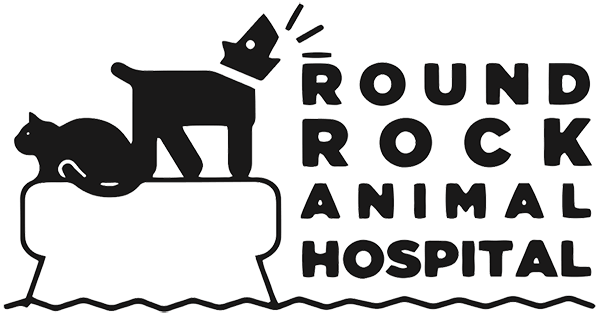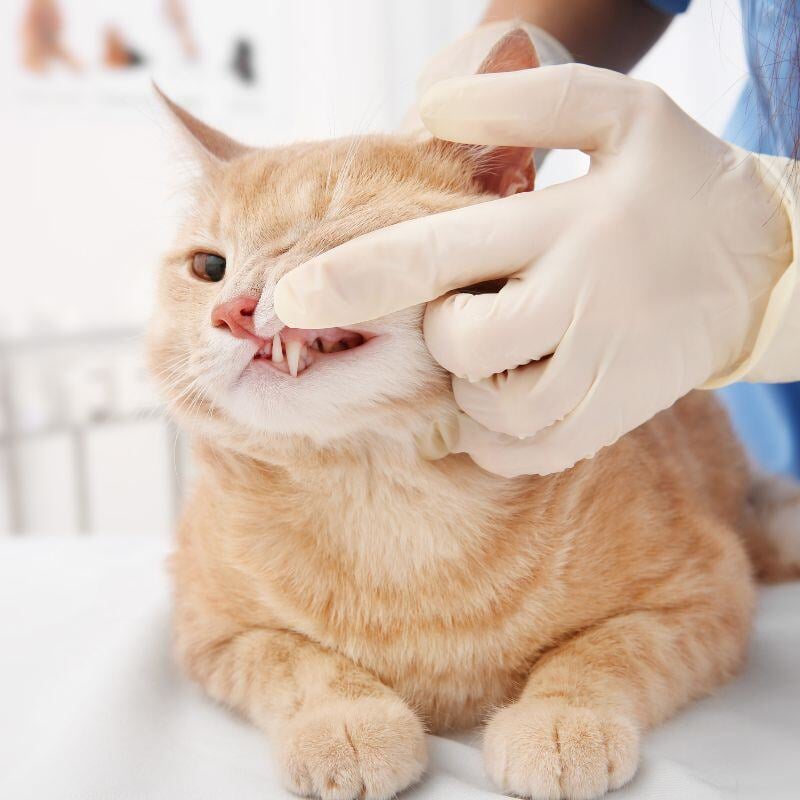Watch for these common signs of dental issues:
- Bad breath
- Drooling or difficulty chewing
- Red, swollen, or bleeding gums
- Loose or missing teeth
- Pawing at the mouth
- Decreased appetite or weight loss
- Yellow or brown tartar buildup on teeth
Dental Services Offered for Cats at Round Rock
Comprehensive Dental Exams
Our veterinarians will evaluate your cat’s teeth, gums, and oral structures for any signs of disease or abnormalities.
Professional Cleanings
We use state-of-the-art equipment to clean above and below the gumline, removing plaque and tartar to prevent periodontal disease.
Digital Dental X-Rays
These help us detect issues below the gumline, such as tooth resorption or hidden infections.
Tooth Extractions
If necessary, we perform extractions to relieve pain and prevent further complications.
Home Dental Care Guidance
We’ll teach you how to maintain your cat’s dental health at home with brushing techniques, dental diets, and safe chew toys.
The Importance of Dental Care for Your Cat
Most cats benefit from an annual professional cleaning, but some may need more frequent care depending on their oral health. By taking a proactive approach to your cat’s dental care, you can help them stay healthy and comfortable throughout their life. Our team uses advanced tools to safely and effectively examine and clean your cat’s teeth, ensuring their comfort and safety throughout the process. We recommend annual dental exams for cats to:
- Identify dental problems early
- Remove plaque and tartar buildup with professional cleanings
- Prevent painful conditions and costly treatments later
- Monitor your cat’s oral health over time
- Address gum inflammation, tooth decay, and abscesses
What Will My Veterinarian Check During a Dental Exam?
A typical dental exam for cats involves a thorough evaluation of their teeth, gums, and oral structures to identify any signs of disease or discomfort. During these appointments, our vets check for common dental issues, signs of disease, and other abnormalities, ensuring your cat's overall oral health is in top condition. During a dental exam, our veterinarians typically examine the following:
- Teeth for tartar buildup, fractures, or discoloration
- Gums for signs of inflammation, redness, or bleeding (gingivitis)
- Loose, broken, or missing teeth
- Bad breath (halitosis)
- Oral cavity for growths, lesions, or abnormalities
- Jaw alignment and bite (occlusion)
- Signs of pain or discomfort in the mouth
- Cheeks, tongue, and lips for ulcers or injuries
- X-rays to assess tooth roots, bone health, and underlying issues below the gum line
- Presence of periodontal pockets or gum recession


.jpg?width=1081&height=1080&name=kitten2%20(1).jpg)
